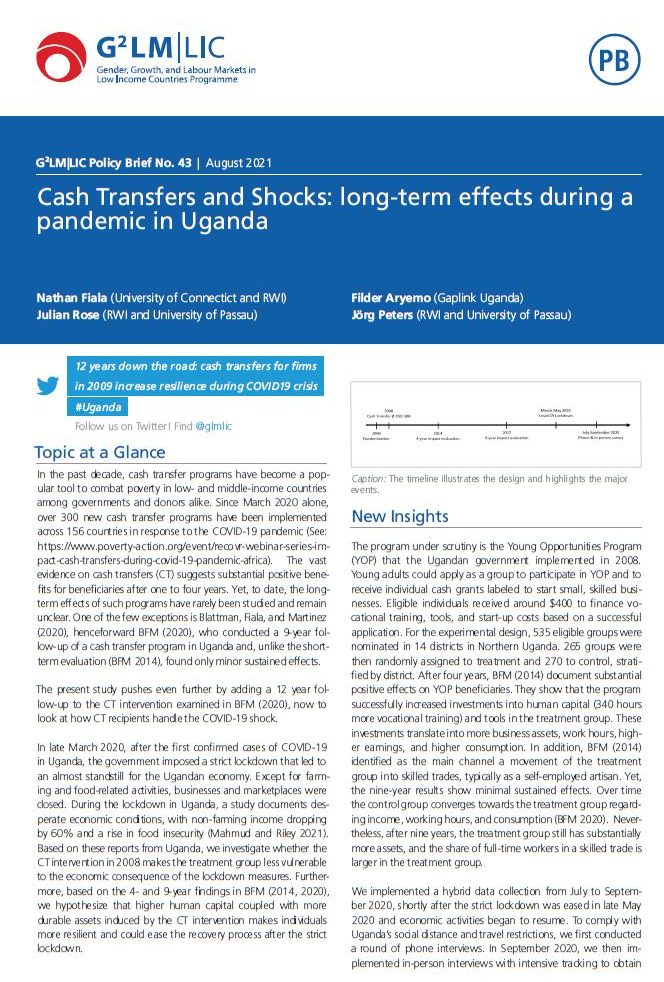In the past decade, cash transfer programs have become a popular tool to combat poverty in low- and middle-income countries among governments and donors alike. Since March 2020 alone, over 300 new cash transfer programs have been implemented across 156 countries in response to the COVID-19 pandemic. The vast evidence on cash transfers (CT) suggests substantial positive benefits for beneficiaries after one to four years. Yet, to date, the long-term effects of such programs have rarely been studied and remain unclear. One of the few exceptions is Blattman, Fiala, and Martinez (2020), henceforward BFM (2020), who conducted a 9-year follow-up of a cash transfer program in Uganda and, unlike the short-term evaluation (BFM 2014), found only minor sustained effects. The present study pushes even further by adding a 12 year follow-up to the CT intervention examined in BFM (2020), now to look at how CT recipients handle the COVID-19 shock.
